
Mining & Trade News
Malawi Online News
Top Stories
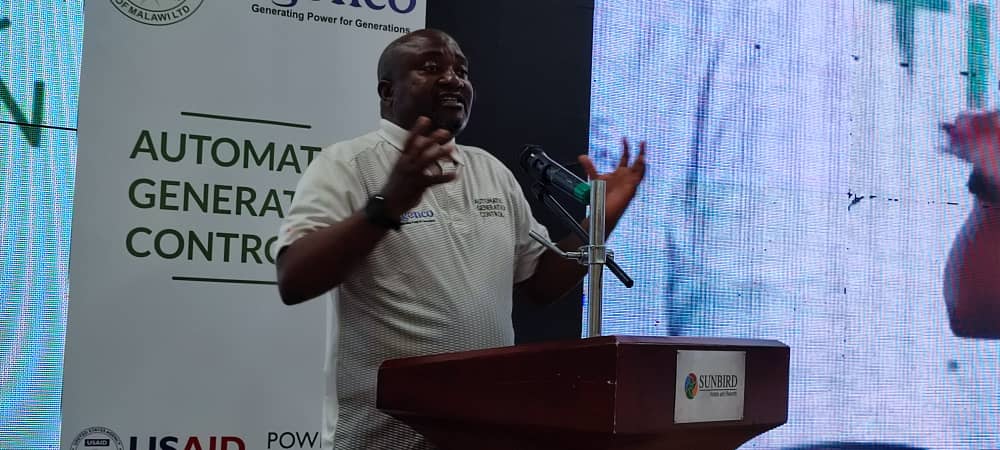
Energy
Automated system to enhance efficiency in Malawi’s power supplyNovember 09, 2023 / Bester Kayaye
Malawi’s power stability is expected to improve following the launch of the country’s first-ever Automatic Generation Control (AGC) system which is aimed at automating generation controls and boosting customer care services.
The United States Agency for International Development (USAID) funded Southern Africa Energy Programme (SAEP) to implement AGC whose end-users are Electricity Supply Corporation of Malawi (ESCOM) and Electricity Generation Company (EGENCO).
The AGC system adjusts the output of generating units in response to changes in the load demand and system conditions while also allocating load demand among available units in a cost-effective way.
This is achieved by adjusting the output of the generating units according to the changes in the load demand and the system conditions.
Speaking in Blantyre during the launching ceremony, a representative of ESCOM’s board chairperson, Jacob Muzalale, emphasized the significance of adopting the innovation saying the technology is vital as it allows the company to serve more customers easily as well as manage power supply and demand loads.
Muzalale said: “The launch is very important to us as ESCOM since one of our objectives is to provide a reliable supply of power, so reliability comes with a continuous supply of power to our customers. AGC is here to automate the process of communication between the supply and the demand including the management, and will go a long way whereby instead of manually calling technicians to increase or decrease the power supply the system will be done automatically hence improving power reliability.”
CEO for EGENCO Maxon Chitawo hinted that the new AGC system has been adopted to bring a balance between the power supply and load demand, frequency as well as power interchange with other systems.
Chitawo said; “The AGC is there to balance the power supply to the end users, we generate it in EGENCO then ESCOM takes it from us to transmit and distribute to the end users but within the system, there is variability in terms of loads through which they are deployed. Example one; a customer may switch on his maize mill while the other may be switching off so that causes an imbalance in the system in terms of frequency, so this AGC is there to control the frequency whereby when the load rises our generators should pick up and when it decreases our system should also produce less in line with the demand.”
“This is a good development as previously we were relying on making phone calls to give commands on the specified power to supply so it was inefficient. The motion has also rekindled the mutual working relationship with ESCOM as we both serve the same people.
“EGENCO is also set to introduce another system called the generation control monitoring system which will be used to measure water levels in all our hydro-generation sites so that we are always well-informed and make necessary adjustments.”
Previously, ESCOM managed generation control through its National Control Centre with EGENCO performing a similar task through its Generation Control Centre whereas local power plant operators do so through their generation sites using telephones.
Minister of Energy Ibrahim Matola expressed excitement with the development saying the innovation signifies the visionary leadership the country has to transform the economy through the creation of a robust energy sector as a pillar that holds productive sectors.
Matola said: “Initially, we were losing time as ESCOM used to wait for customers to call so that they are made aware of where the fault is but with AGC, the system will be able to reflect and detect all fault areas and have them rectified effectively therefore achieving optimum efficiency on time and resources.”
“So it is imperative that we experience such innovations in the energy sector as it is the pillar that holds all other productive sectors.”
The introduction of the AGC system is in line with ESCOM’s Integrated Strategic Plan for the period 2023 to 2027 launched in Lilongwe last week under the theme: ‘Driving value by building positive stakeholder relationships and partnerships.’
AGC also coordinates the economic dispatch of the generating units, which means allocating the load demand among the available units in the most cost-effective way.
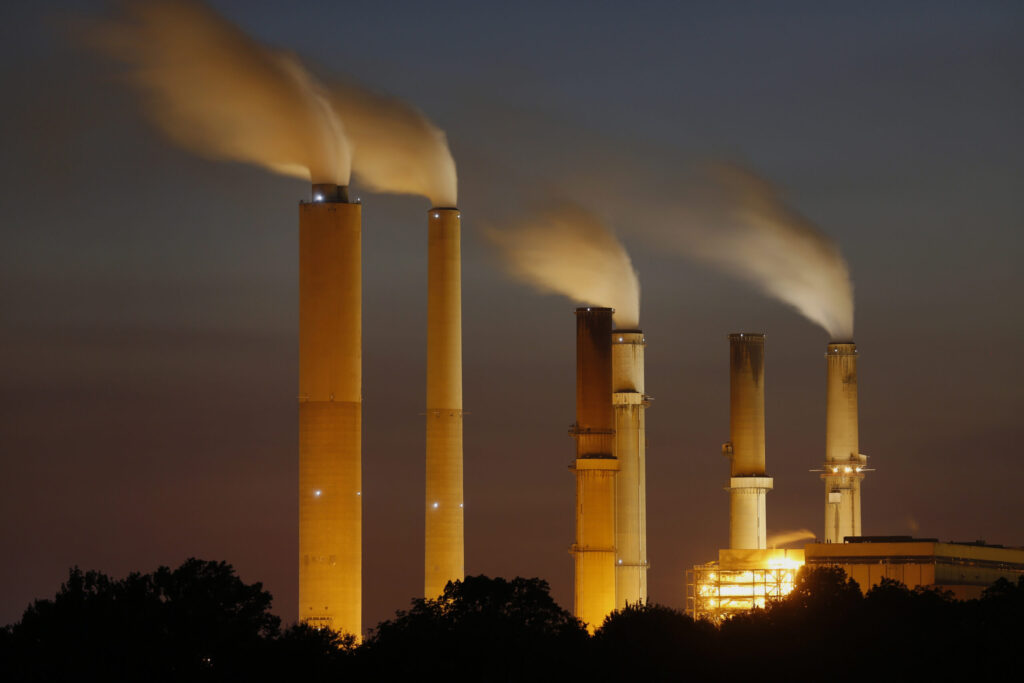
Energy
Mchenga seeks strategic investors for coal fired power plant projectSeptember 25, 2023 / Bester Kayaye
Mchenga Coal Mine is scouting for strategic investors in the development of its 100MW Rukuru Coal Fired Power Plant, which is expected to be constructed close to the M1 Road in Rumphi within the vicinity of the coal mining site.
Mchenga Coal Mine GM Lincoln Bailey is quoted in the Malawi Investment and Trade Centre (MITC) Investment Projects Compendium Volume 4 as saying that they are seeking equity partners to invest in development of the plant which will comprise two power generating units (each with a rating capacity of 50 MW) fuelled by coal largely from the Mchenga Mine mixed with coals from other mines.
Bailey explains that the project which is planned to supply power to the national grid will be executed in two phases, with the initial 100MW capacity representing the first phase of a targeted 250MW plant.
“Critical to the project’s success is the construction of the new Bwengu Substation, situated 65 kilometers south of the project site, adjacent to the M1 Road, and a 132kV outgoing transmission line linking the power plant to the new Bwengu Substation,” he says.
A feasibility study conducted by leading engineering consulting Fichtner indicates that the project can be effectively integrated into the national power grid, pending the negotiation and signing of a Power Purchase Agreement (PPA) with the Electricity Supply Corporation of Malawi (ESCOM).
Bailey says: “The CPL-Mchenga coal mining operations, a key supplier of coal for the Rukuru Power Plant, are situated in the Livingstonia Coalfield in Rumphi District, approximately 20 kilometers north of Mzuzu, Malawi’s northern capital. The power plant itself will be strategically positioned just 500 meters from Lake Malawi, making it a significant contributor to the region’s power needs.”
“The Rukuru Power Plant project aligns with the government’s objectives of economic development and energy security. Malawi currently grapples with a severe power deficit, hampering its economic growth and development. By supplying firm baseload power to the national grid, the Rukuru Power Plant aims to address these issues and meet the escalating demand for electricity in the country.”
“The project is not only economically viable but also promises numerous social benefits, including improved electricity supply reliability. It is poised to contribute substantially to the nation’s energy security, fostering a conducive environment for business growth and prosperity.”
He says in order to bridge the project’s funding gap, the project promoters are seeking a term loan of US$146.4 million while equity and strategic investors are also being courted to support the endeavor’s financial needs.”
Meanwhile, the Rukuru Power Plant project has already achieved significant milestones, including signing of a Memorandum of Understanding (MOU) with the Malawi government and an Engineering, Procurement, and Construction (EPC) Contract with Power Construction Corporation of China.
“Additionally, a Memorandum of Understanding and Power Purchase Agreement Term Sheet has been agreed upon with ESCOM,” says Bailey.
The project has undergone rigorous feasibility assessments, including a bankable feasibility study, financial model development, and an Environmental and Social Impact Assessment (ESIA). While a Partial Risk Guarantee from the African Development Bank (AfDB) was initially secured, it was later withdrawn due to pressure from the AfDB’s European and American funders who have imposed bans on coal-related funding.
The Rukuru Power Plant project demonstrates a promising Internal Rate of Return (IRR) of 10.2%, a Net Present Value (NPV) of US$27,893,761, and a Payback Period of 10.8 years.
In a related development, a locally registered firm Lone Star Energy is also scouting for investment partners to embark on the construction of a coal fired power generation plant in Rumphi district.
Listing on the Malawi Investment and Trade Center (MITC) investment projects compendium volume 4, the company is seeking a minimum investment of $90-million to fund the procurement and installation of a state-of-the-art power plant in the picturesque district of Rumphi.
MD for Lone Star Energy John Swira says the ambitious endeavor, which is poised to transform the energy landscape in Malawi, offers a unique opportunity for investors to engage in a low-risk venture with promising annual returns.
Swira explains that Lone Star Energy has already demonstrated its commitment by investing over $10-million to date and has received the green light from the Malawi government to conduct a comprehensive feasibility study.
He says: “The project has now reached a pivotal stage where it can extend its hand to new investors, offering them the prospect of owning a substantial share of Lone Star Energy Ltd, a Malawian registered company poised to revolutionize the energy sector in the region.”
“The ownership stake on offer ranges from 40% to 60%, providing investors with a significant influence on the company’s direction and future profitability.”
“One of the most significant beneficiaries of this venture will be the government of Malawi itself, as it has been earmarked as the primary buyer of the electricity generated by Lone Star Energy. This initiative is anticipated to address the acute shortage of electricity in the country, acting as a catalyst for economic growth across all sectors.”
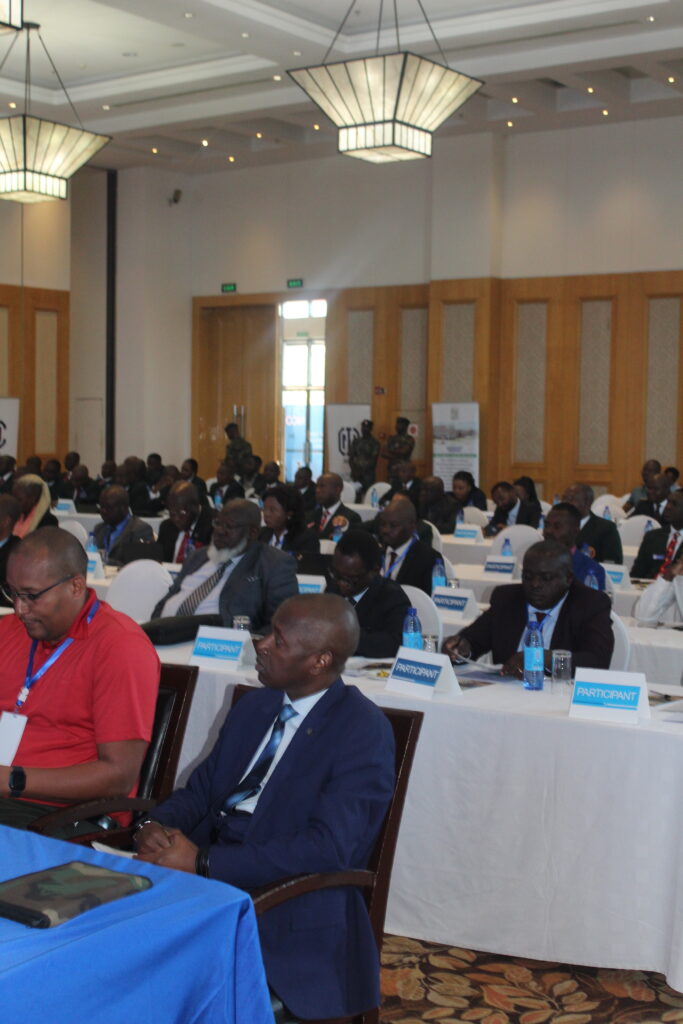
Energy
Energy Symposium recommends resumption of oil exploration in MalawiSeptember 25, 2023 / Wahard Betha
There is need for Malawi to seize the opportunity to diversify its energy sources by, among other things, explore for oil and gas in the country’s East African Rift System whose potential for discovery of hydrocarbons has long been known.
This is contained in a keynote speech which was delivered by University of Malawi Vice Chancellor Sunduzwayo Madise at an Energy Symposium that was held at Bingu National Convention Centre in Lilongwe.
The symposium, which was held with the theme ‘Optimising Energy, Oil, and Gas Exploration and Production in Malawi,’ also marked the launch of the Centre for Strategic Studies by the Malawi Defence Force (MDF) in conjunction with Malawi University of Science and Technology (MUST) in collaboration with National Planning Commission.
The Centre will undertake strategic studies including geological studies that are crucial in fulfilling the Malawi 2063 Vision to transform into “An Inclusively Wealthy and Self-reliant Nation.”
Madise, however, called on all stakeholders in the extractive sector to tread cautiously and ensure that any exploration activity on Lake Malawi is guided by rigorous scientific analysis and adherence to environmental protection measures.
He said: “While exploration in other East African countries has yielded promising results, Malawi remains relatively unexplored.”
“However, we must tread cautiously, keeping in mind our commitment to environmental stewardship and the preservation of our natural heritage.”
“We must take a pragmatic and strategic approach to explore and develop our energy resources. As we venture into the potential of drilling in Lake Malawi, we are acutely aware of the environmental and ecological concerns.”
“This pristine ecosystem is home to a rich biodiversity and sustains the livelihoods of over 1.5 million people. The impact on local communities and heritage sites must be thoughtfully considered.”
Madise pointed out that Lake Malawi is one of the largest freshwater lakes in the world that presents the country with both opportunities and challenges.
He said the lake’s sanctuary of biodiversity, supports unique ecosystems and provides livelihoods for millions of Malawians.
Madise said: “Any exploration and drilling activities must be conducted with utmost care and adherence to stringent environmental standards.”
“We must prioritize onshore exploration and consider directional drilling as the first choice under the lake, mitigating potential risks and ensuring the protection of this invaluable resource.”
“However, as we embark on this journey, we must also manage expectations. Oil and gas exploration is a long and complex process that requires time, investment, and global market dynamics to align favorably.”
“While we may envision substantial wealth from our natural resources, we must remain grounded in the reality of the challenges and uncertainties that lie ahead.
“We must diversify our economy and strengthen other sectors while developing our energy resources sustainably.”
Madise also explained that in as far as optimization of energy, oil, and gas exploration and production is concerned, stakeholders must also address the broader context of national development agenda.
The country’s goal of becoming an inclusively wealthy and self-reliant industrialized upper-middle-income country by 2063 relies on the three inter-linked pillars of agriculture productivity and commercialization, industrialization, and urbanization where by energy infrastructure is a key enabler for the success of these pillars.
Madise said the country needs to explore innovative solutions, establish robust partnerships, and unlock the immense potential that lies within the nation.
He said the country has to foster an environment that attracts investment, encourages research and development, and promotes sustainable practices, to ensure that the energy sector becomes a catalyst for economic growth, job creation, and social development.
He said: “We must attract investment and create an enabling environment for businesses to participate in climate-related sectors and energy projects.”
“We therefore need bankable projects which can attract both foreign and domestic investment. The private sector will not invest in projects that are not sustainable or have no economic potential.”
“Development partners’ support will also play a pivotal role in bolstering our efforts to tackle climate change and adapt to its impacts. But let us be careful lest we dance to the tune of others.”
“Ultimately, our success will be measured not only by economic growth but also by the well-being and prosperity of our people and that we must prioritize social inclusivity, equitable distribution of resources, and environmental sustainability in every step we take.”
Meanwhile, Malawi has six vacant oil and gas exploration blocks in its Great East African Rift Geological Zone after original tenement holders relinquished licenses about three years ago.
Government is yet to advertise the blocks to new investors as it has been preoccupied with developing the legal frame work for oil and gas exploration and production including coming up with a new Petroleum and Production Policy, reviewing the Petroleum (Exploration and Production) Act 1983 and coming up with a model Petroleum Sharing Agreement.

Energy
Malawi to hold Energy SymposiumJuly 17, 2023 / Chrissy Fereciah Nkumba
The Centre for Strategic Studies in the Malawi Defence Force in partnership with the Malawi University of Science and Technology (MUST) and the National Planning Commission (NPC) have organized an Energy Symposium to be held on July 18 at the Bingu International Conference Centre (BICC) in Lilongwe.
The solution-oriented symposium will bring together thought leaders and industry experts to assess key issues facing the energy sector with the view to identify measures that will revitalize the country’s energy sector, promote energy stewardship, bolster efficiency and sustainability of power generation, and supply towards accelerating the attainment of zero energy deficit and reduce energy insecurity in Malawi.
The meeting will be co-hosted by Professor Address Malata, Vice Chancellor of Malawi University of Science and Technology (MUST); Dr Thomas Chataghalala Munthali, Director General of National Planning Commission (NPC); and General (Dr) Paul Velentino Phiri, Commander of the MDF.
The theme of the Symposium is; “Optimising Energy, Oil and Gas Production in Malawi.
Reads a joint Press Statement by the Centre and MUST: “The Keynote address will be delivered by Prof Robert Rotberg, President Emeritus of World Peace Foundation, Founding Director, Harvard Kennedy School’s Programme on intrastate conflict, and Vice- Chair of integrity initiatives International
The session will include several presentations such as Industrialisation: Realising Pillar Two of the Malawi 2063; Mapping Expansion of the Malawi Energy, Oil, and Gas Landscape, Energy and National Security; Negotiating Energy, Oil and Gas Agreements , Private sector Involvement in the Energy Sector and The Role of Traditional and Community Leaders in the Energy Sector.
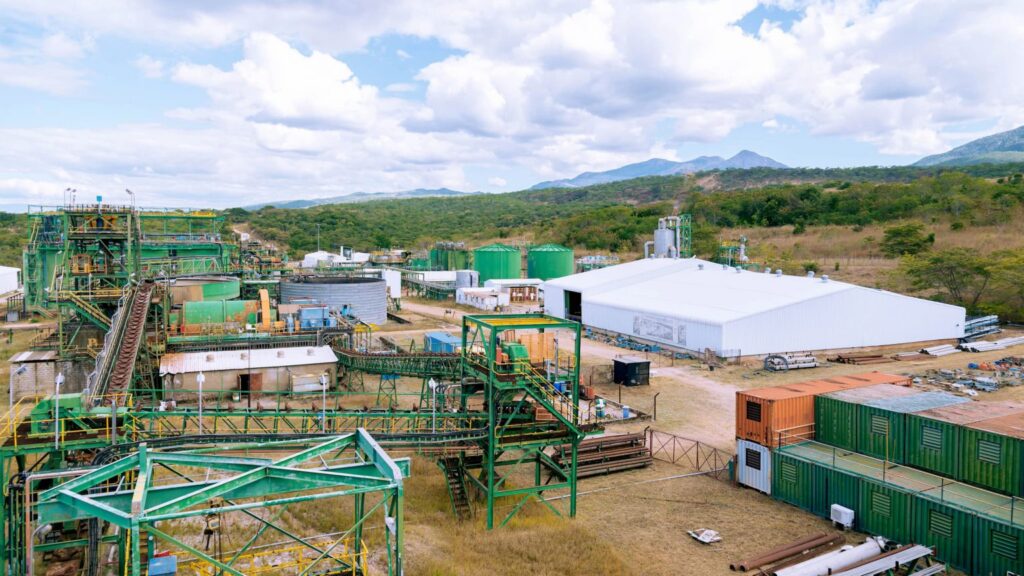
Energy
Mining sector has potential to drive Malawi’s economic growth – World BankJune 21, 2023 / Wahard Betha
The World Bank says Malawi’s mining sector has the potential to drive the country’s economic growth and address fiscal and foreign exchange constraints currently being faced.
In its 17th edition of Malawi Economic Monitor released in July 2023, the Brettonwood Institution says despite such potential, the sector currently, plays a relatively small role, accounting for less than one percent of Gross Domestic Product (GDP).
Reads the report: “Currently, seven larger projects are moving ahead and may begin production before the end of the decade, with many of these likely to produce so-called green minerals necessary to support the energy transition.”
“However, past mining projects in Malawi and elsewhere in the region have often failed to deliver on their promise while projections from mining firms indicate that the sector could play a significant role in the economy, these projections need to be treated with caution at this stage given the many variables that could influence the materialization of these benefits.”
“Moving ahead it will be important to ensure that these assets, which belong to the country, are not squandered.”
The World Bank also acknowledged delays in production saying the tendency and price fluctuations can create significant uncertainty around likely revenue and export outcomes.
It says: “The ongoing debt crisis in Ghana, was the result of, among others, heavy borrowing following the discovery of oil and poor public investment decisions.”
“This means there is need for both incentivizing investment and ensuring that the Government maximizes the fiscal gains from these resources over many years, and spends these resources effectively to benefit the population which will require a stable (but not necessarily low tax) fiscal regime, as well as careful assessments of the potential impact of different incentives.”
“The government is currently reforming the legal and institutional structure to support the sector and in this context, it will be important to ensure that expertise is sought to support negotiations and that all contracts are made public.”
“Malawi’s participation in the Extractives Industry Transparency Initiative (EITI) creates an important institutional framework to support this.”
On the energy sector, the Bank states that despite having a number of projects in pipeline, Malawi has one of the lowest electricity access rates in the world where by the electricity access rate for 2023 is estimated at 19 percent with severe disparities between urban 42% and rural areas 5%.
The Bank laments that Malawi has set ambitious policy goals in the energy sector, but implementation has often lagged behind.
The Government of Malawi set a goal to achieve universal energy access by 2030 whereby in 2018, it published a revised National Energy Policy (NEP 2018), which serves as the main guiding document for the sector.
NEP 2018 set the target of universal access by 2030, in line with the Government’s commitment to achieve Sustainable Development Goal 7.
This builds on the experiences of longstanding programs to increase electricity access and also incorporates recent programs, such as the United States Agency for International Development (USAID)-funded “Kick-Starter Program” and the World Bank-funded Malawi Energy Access Program (MEAP).
In 2019, the Ministry of Energy prepared a National Electrification Strategy in line with policies in the NEP 2018 whereby the NES proposes a framework through which the Government will guide accelerated access to households and businesses at acceptable quality and levels of service that is anchored in the priority policies presented in the NEP 2018.
The strategic elements of the NES are organized in four thematic pillars institutional, policy and regulatory, technical and planning, and financial that taken together define the means and processes by which electrification expansion will be implemented.
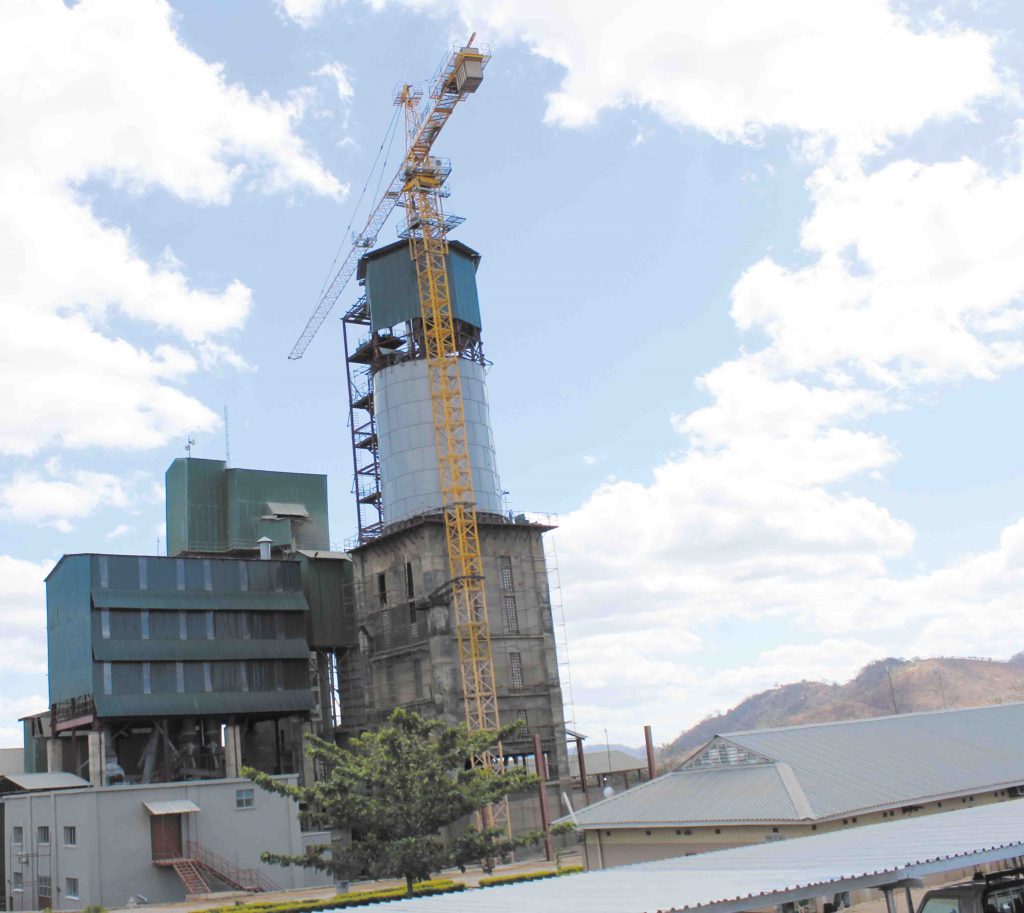
Energy
Mining companies bemoan power outagesMarch 31, 2023 / Chrissy Fereciah Nkumba
Mining companies have expressed concern over regular power outages in the country that have been exacerbated by the damage of power stations on the Shire River due to flooding as a result of very heavy rains mainly in the Southern Region caused by Tropical Cyclone Freddy.
Coordinator for Malawi Chamber of Mines and Energy Grain Malunga says the power outages are resulting in low production of mining companies including those in cement and coal production, which are being forced to use stand by power from diesel generators.
Malunga advised Government to develop hydropower in other rivers such as Bua and Rukuru and implement energy mix including developing coal fired power stations.
“There is need to establish a Development Finance Institution with sizeable lines of credit to, among others, finance development of coal fired power stations by the private sector as Malawi has low capital base,” he said.
Concurring with Malunga, Chairman for Cement Products Aslam Gaffar also expressed concern over the power outages saying the situation is forcing them to use diesel power generators to run their plants, which is a very expensive option.
“The government has to substantially invest in power generation in order for the industry to grow, employ more people and invest more in corporate social responsibility to uplift the livelihoods of rural communities,” he said.
MD for Rukuru Coal Mine Bruno Klose also lamented the power outages saying they are affecting the mine’s operations.
“The power outages affect us as we use our stand by power but our operations do not stop because we are always prepared as we experience electricity supply interruptions regularly. Only this time is the longest period we have had no power so far. No mine in Malawi can run efficiently without independent power system.
He also agreed with Malunga and Gaffar on the need for Malawi to invest in more power generation projects and diversify energy sources.
“Thermal power generation has been touted by several quarters for some time. It is a possibility to investigate. Is it the best solution for Malawi? There is still sizeable hydropower potential and unlike thermal stations which are for base load, at least some of the hydropower projects like Mpatamanga are being designed to peak load which is what our country needs,” he said.
Asked if his company is interested in investing in a coal fired power plant, Klose said there are no such plans at the moment as his company as focused at only supplying the growing local industry with quality coal from Malawi as currently half of coal consumed by the local industry is produced locally.
Malawi has been experiencing prolonged power outages following the damages caused by the cyclone which forced Electricity Generation Company (EGENCO) to stop generating power at some power stations including Nkula and Tedzani.
The heavy rains also resulted in the destruction of other power transmission equipment including power lines which forced the Electricity Supply Corporation (Escom) to cut off supply to affected areas.
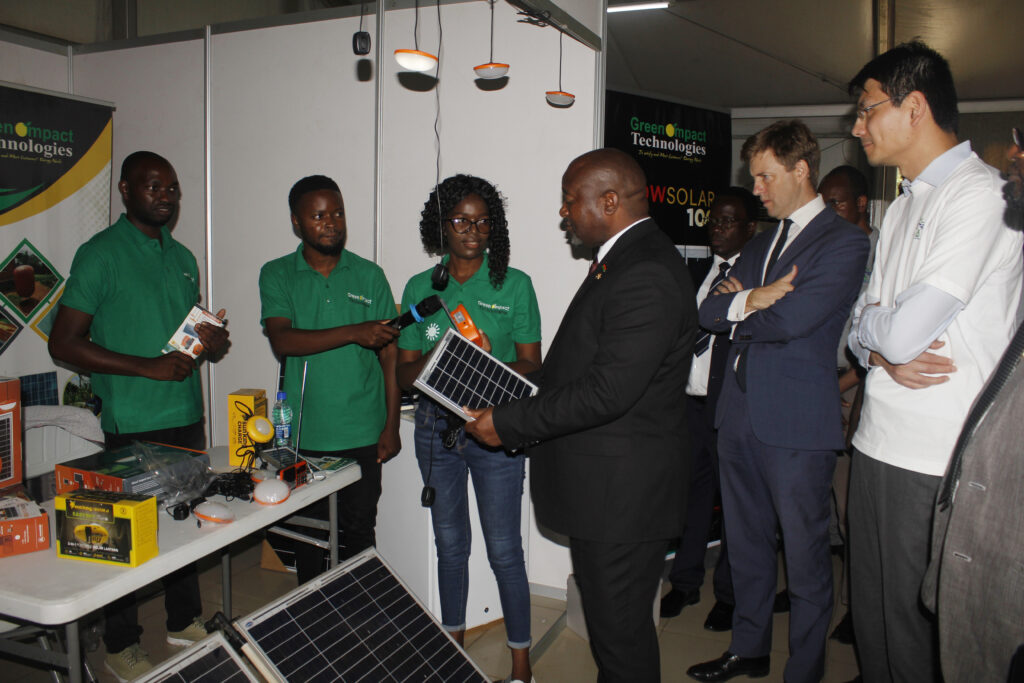
Energy
World Bank funded project to increase Malawi’s rural electrification rate by 5%March 10, 2023 / Wahard Betha
In an effort to address the electricity access challenges, the Malawi’s Ministry of Energy has launched the Ngwee Ngwee Ngwee Fund with the target to add 5% national rural electricity access rate by 2024.
The US$20-million Fund is being bankrolled by the World Bank through the Malawi Electricity Access Project (MEAP) to enable eligible solar off-grid companies to import and distribute over 200,000 solar home systems to rural households across Malawi.
During the official launch in Lilongwe, Minister of Energy Ibrahim Matola said the project aims at increasing access to electricity through grid densification of Electricity Supply Corporation of Malawi (ESCOM) component, and Off-grid Market Development, which is Ministry of Energy component.
Matola said: “With this project’s component, Malawians, especially those living in rural and remote areas that are far from the national grid, will enjoy the benefits of electricity.”
“This project is, therefore, complimenting Government’s efforts to reach more people in rural areas with access to electricity where the Malawi Rural Electrification Programme (MAREP) which is now in Phase 9, is yet to reach.”
“This Ngwee Ngwee Ngwee Fund we are launching today is a complete package of interventions to unleash the potential off-grid solar market to cover 70% of electrified households in Malawi as aspired for in the National Energy Policy of 2018.”
“By assisting the off-grid solar companies, this Fund is fulfilling another aspiration in the National Energy Policy, to establish a vibrant, reliable, incentivized and sustainable private sector-driven Renewable Energy Technology industry.”
“Not only will this project benefit off-grid solar companies but, financial institutions will also benefit a lot from this initiative through the Technical Assistance Window which will provide training and capacity-building.”
The technical assistance includes: promotion and awareness building; quality assurance activities including the adoption and enforcement of Verasol quality assurance framework, efficient financial management and monitoring of collection efficiency; training of trainers, consumers and technicians to facilitate the efficient installation and maintenance of solar home systems.
Currently, the electrification rate is at 18% with 11.4% coming from the National grid and 6.6% from Off-grid solar solutions.
The fund will provide loans to eligible off-grid solar companies as working capital to expand their operations and speed up procurement and importation of the off-grid solar home systems.
He also said the project will also offer Result Based Grants to provide end-user with subsidies to close the affordability gap of rural customers that cannot afford solar home systems at the current commercial prices.
Matola also said the Fund will create a Market Catalyst Fund (MCF) of USD 500,000 to support small-scale off-grid market-based transformative solutions to scale-up the renewable energy transition, particularly by engaging the local off-grid solar companies in Malawi.
He said: “The idea is to make these local off-grid solar companies grow to the extent of being able to access capital on the market for the expansion of their businesses.”
“I, therefore, call upon the private sector companies to take advantage of this Fund and use it to expand their businesses in the off-grid solar market.”
“The terms of the loans have been made very competitive, as such, I do not expect any off-grid solar company to default on the loans they acquire from this Fund.”
“It is also my expectation that participating solar off-grid companies will operate within the principles of MEAP, the laws of Malawi and the World Bank’s operating framework.”
Matola further applauded World Bank for extending the loan and grant to the Government of Malawi, to implement the important project saying the Fund has come at an opportune time when the country needs massive investments in the energy sector to increase access to modern, clean, reliable and affordable energy.
He said the project will play a great role in fulfilling the Malawi Government goal of ensuring universal access to electricity by 2030, by providing the much needed financing to the Malawi off-grid solar market.
In his remarks, World Bank Country Manager for Malawi Hugh Ridelllauded solar off-grid power saying on-grid electricity is sometimes hard to reach rural, remote and the poor; and the fund will make Malawi to reach the United Nation’s Social Development Goal 7 (SDG7) which ensures access to affordable, reliable, sustainable and modern energy for all.
Ridellalso said the World Bank together with partners are working with Malawi Government in developing standards and policies in the next two years that will ensure the availability of a market where consumers are protected from low-quality products and benefit from lower prices driven by market competition.
“The World Bank acknowledges that expanding access to sustainable energy while protecting natural resources is essential to achieve climate and development goals. Expanding energy access is a catalyst to achieving sustainable and resilient economy with people firmly at the centre,” said Ridell.
Apart from the Ngwee Ngwee Ngwee Fund, World Bank is financing other energy projects including: The Mpatamanga Hydropower Project; technical assistance for ESCOM’s financial turnaround and; the Malawi-Mozambique Interconnector project.
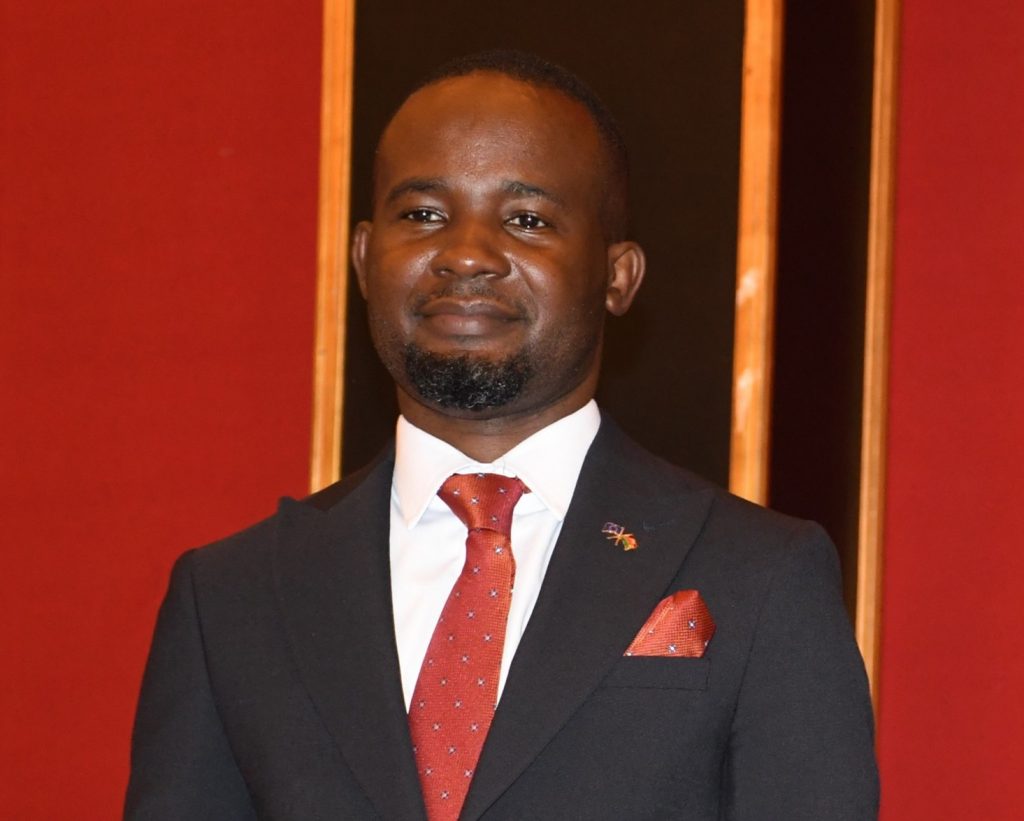
Energy
Prioritise energy issues in budget – MCCCIJanuary 12, 2023 / Bester Kayaye
The Malawi Confederation of Chambers of Commerce and Industry (MCCCI) says there is need for the Malawi Government to prioritise overcoming the country’s energy challenges when formulating the 2023/2024 budget.
MCCCI CEO Chancellor Kaferapanjira said during the Ministry of Finance and Economic Affairs’ pre-budget consultation meeting for the 2023/2024 fiscal year at Mount Soche Hotel in Blantyre that electricity supply challenges are decelerating the growth of the country’s manufacturing industry.
Kaferapanjira said addressing the energy challenges will bring out vibrancy, responsiveness and dynamism in the private sector as aspired in MW2063 so that the private sector can accelerate attainment of inclusive growth, wealth, and job creation for all Malawians.
He said: “The year 2022 posed a real challenge to businesses owing to economic shocks that defined it, which included shortages of foreign exchange and fuel, inadequate electricity supply, and high levels of inflation. The impacts of these shocks on businesses continue to be felt today.”
“Therefore we emphasize that government agencies especially Electricity Generation Company (EGENCO) should work with seriousness on electricity, yet private sector has also a role to play by investing in electricity production through alternative technologies for instance solar energy.”
Kaferapanjira bemoaned that EGENCO has taken a long time working on bringing back on stream the 129 Megawatts that was lost at Kapichira Power Station due to Cyclone Anna last year.
He said: “One point I am raising is that the foreign exchange shortage hampering fuel importation is also caused partly by EGENCO because industries now consume about 52 million litres of fuel per month. Such a high consumption is attributed significantly to inadequate supply of electricity to these manufacturers.”
“If EGENCO had played its role prudently, the demand for fuel by industries would have dwindled hence easing stress on fuel importation and consumption for other sectors as well as saving forex that could have been channeled to other vital sectors.”
“Government should move with urgency to stabilize electricity supply and increase electricity generation using both hydro and other alternative sources of energy to support the industrialization drive.”
In his remarks, Minister of Finance and Economic Affairs Sosten Gwengwe pledged that Government will ensure that the budget is in all practical sense aligned to the Malawi 2063 and its first 10-year implementation plan targeting the quick wins especially in the economic sectors that can generate wealth, create jobs, while at the same time entrenching food security and providing the nation with enough resources to retire its debt and enabling Government to sufficiently support social sectors.
“Government has set out the macroeconomic framework for the 2023/24 Budget that looks at the macroeconomic targets such as fiscal and monetary measures and the debt sustainability targets to be achieved by the end of the fiscal year,” he said.
Malawi’s economy is projected to grow by 2.6% up in 2023 from 1.7% in 2022 despite several economy bottlenecks the country is encountering including electricity supply disruptions, shortage of forex and fuel which continue to suffocate business operations.
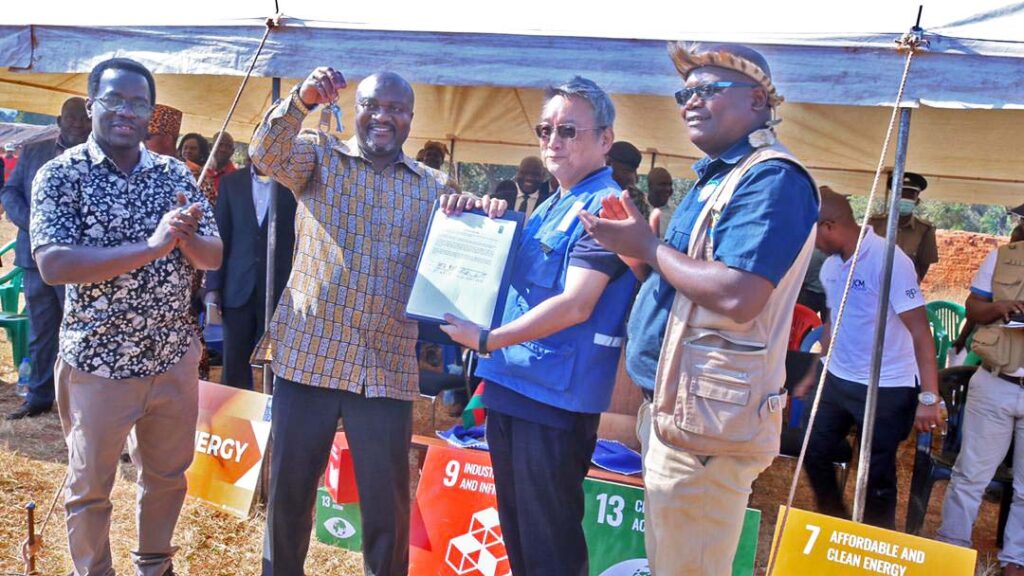
Energy
Community Energy Malawi to develop over 100 mini-gridsOctober 14, 2022 / Bester Kayaye
A local non-governmental organisation Community Energy Malawi (CEM) says it has planned to construct over 100 mini grids in Malawi’s rural areas that have no access to power from the national grid.
The mini-grids which will utilise either micro solar or hydro technologies will be cabled to economic enablers such as irrigation and agro-processing projects, entrepreneurship activities, clinics, schools and households.
The project is targeting to connect at least 2,000 customers and benefit 10,000 people directly per mini-grid site.
CEM’s Country Director Edgar Kapiza Bayani told Mining and Trade Review that the organisation intends to electrify over 100 rural communities that have no access to sustainable energy.
CEM already operates the 80kW Sitolo Solar Mini-grid in Mchinji which has 735 customers connected with potential to grow to 1,200 customers, benefiting over 6,000 people.
Bayani explained: “The success, impact and experience in operating the 80kW Sitolo mini-grid and our activities in Malawi communities since 2011 have in turn generated demand for similar services across the country.”
“The 100 mini-grids project is envisaged to catalyse creation of 126,000 jobs, enhance performance of existing small to medium scale businesses, catalyse 1,000 new enterprises as well as enhance social services in education, health and general well-being for 1-million men, women, boys and girls. By powering schools, clinics and police units/posts and providing street lights around villages, the project will also support social capital development.”
He also expressed optimism that the project will fast-track economic growth of rural areas and ensure community resilience as it is grounded in climate justice concepts to utilise renewable energy technologies in decentralized energy systems that are resilient and robust, and reduce carbon foot print.
“It will ultimately advance environmental protection by reducing the use of kerosene for lighting and charcoal for cooking,” he said.
Bayani said the project is backed by diverse energy policies in the country such as the Malawi Renewable Energy Strategy which observes that mini-grids have the potential to connect 27% of Malawians in remote off-grid areas.
He said: This vision is also espoused in the Malawi National Energy Policy (2018) and the Malawi Least Cost Geospatial Electrification Plan which posits that minigrids are a cost effective means to electrify communities that are more than 10km from grid.”
“The project will favourably complement government’s goal of increasing access to electricity for Malawians. As Government works on increasing grid access, we are working with off-grid communities and catalyzing small scale factories as is the case at Sitolo where there is a sunflower oil processing facility. The mini-grids will be deployed in accordance with the Mini-grid Regulatory Framework.”
Meanwhile, CEM is working with another NGO Challenges WorldWide in conducting a prefeasibility study for the project and it is also finalizing plans to expand Sitolo Mini-grid to accommodate a new village as well as growing demand to cater for facilities like a third maize mill and other productive loads.
“We secured support from The Pebble Trust of Scotland and some Scottish Friends which is enabling us to visit the communities that expressed interest in mini-grid projects. So far we have visited Mchinji, Ntchisi, Salima, Nkhotakota and part of Lilongwe where about 25 villages have shown potential. We are on course to visit isolated villages that cannot be easily accessed in the rainy season in northern and southern regions before mid-November.”
The organization has also secured preliminary investment deals from different equity, grant making and loan financiers from mainly United States and Scotland, who are anticipating a full investment plan and finalization of other details.
“A financial institution Green Max Capital is also working with us in a deal that will see the United States Trade and Development Agency financing some of the activities. We are working on setting up a Special Purpose Vehicle called CEM Minigrids Ltd to accommodate equity investors and also operate on business lines”
CEM has executed several leading initiatives in Malawi’s remote areas impacting thousands in 17 districts.
Other than the 80kW Sitolo Solar Minigrid, CEM has also implemented projects such as solar powered irrigation and cold storage; resilient solar systems in hospitals; sun ovens for rural bakeries; and policy advocacy.
Recently, CEM has been shortlisted for the ASHDEN 2022 International Award in the Energy Access Skills category.































